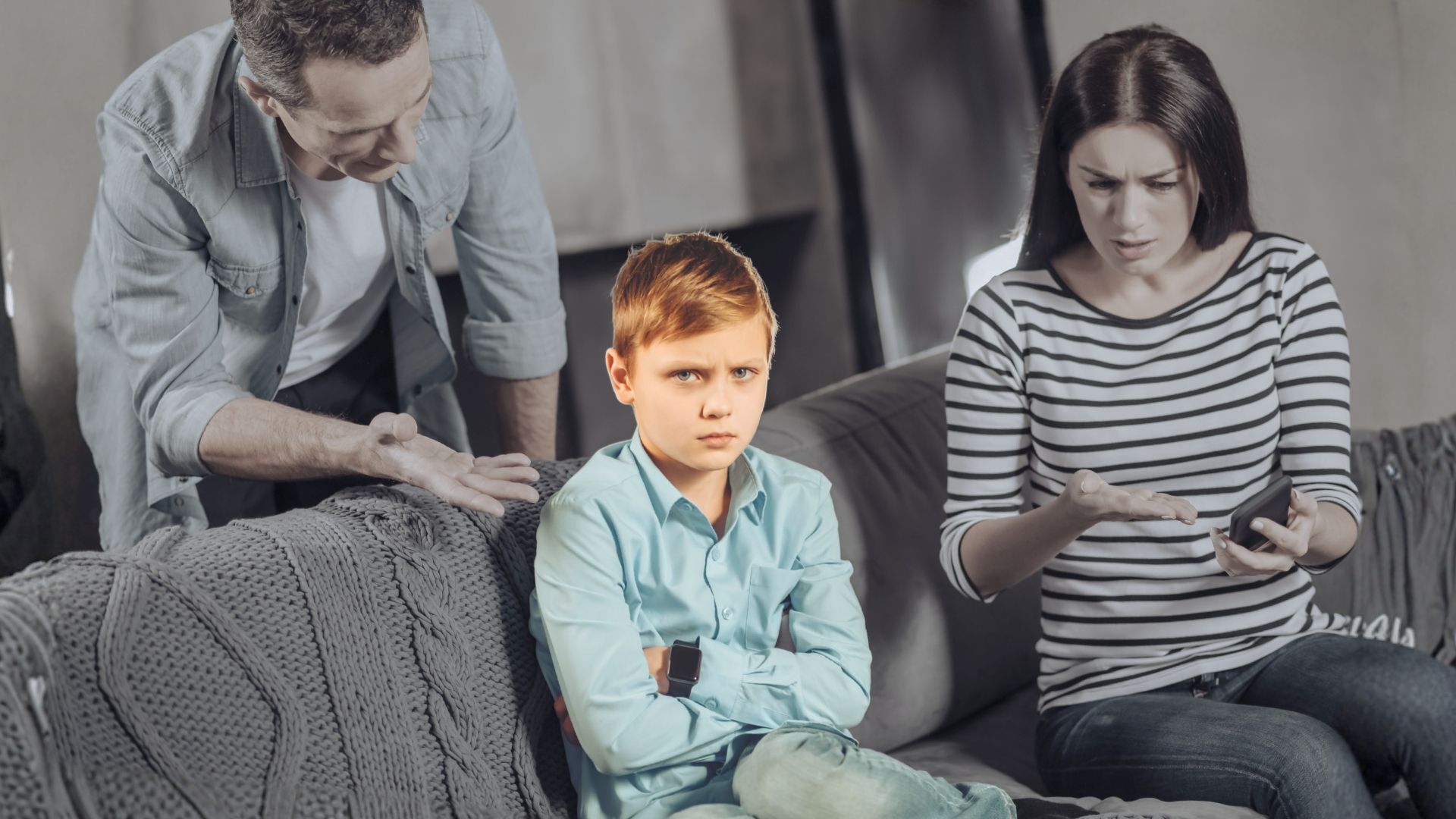Gentle Parenting: Why It Backfires With ADHD Kids and What to Do Instead | Ryan Wexelblatt, LCSW, ADHD Dude

Many parents are drawn to gentle parenting because it emphasizes empathy, emotional connection, and validation. And for many families, it seems like the kinder, more progressive choice—one that avoids power struggles and punishment in favor of respectful dialogue.
But if you’re parenting a child with ADHD, you’ve probably discovered what many families who reach out to me already know: gentle parenting doesn’t work the way it’s supposed to. And that’s not because you’re doing it wrong—it’s because your child has a brain-based developmental delay that requires a completely different approach.
I’m Ryan Wexelblatt, LCSW, a licensed clinical social worker, former school social worker, and the father of a son with ADHD and learning differences. I created ADHD Dude to bridge the gap between what parents are told about ADHD—and what actually works.
Here’s why gentle parenting often fails ADHD kids, and what strategies really help.
The Problem With Gentle Parenting for ADHD
Gentle parenting is built around empathy, collaboration, and non-punitive discipline. It emphasizes connection over consequences and encourages parents to guide children through emotion-driven behavior using compassion and conversation.
That may work for neurotypical kids or for children with mild, inattentive ADHD presentations. But for most ADHD kids—especially those who struggle with emotional regulation and executive functioning—gentle parenting often makes things worse.
And there’s research to support why (Baumrind, 1991; Gathright & Tyler, 2022).
ADHD Is a Developmental Delay in Self-Regulation
ADHD impacts key executive function skills, including:
- Impulse control
- Cognitive flexibility
- Emotional regulation
- Verbal working memory
These are not moral or emotional deficits—they are developmental delays (Barkley, 2015; Willcutt et al., 2005). That means ADHD kids:
- Struggle to internalize verbal instruction
- Get overwhelmed by emotional reasoning
- Don’t respond to vague or delayed consequences
- Have difficulty adapting to subtle cues or implied expectations
So when gentle parenting relies heavily on reasoning, talking things out, or long emotional explanations, it bypasses how ADHD brains actually learn (Gathercole & Alloway, 2008).
Research Shows Gentle Parenting Isn't Effective for ADHD
Multiple studies confirm that children with ADHD:
- Need external structure and clear expectations to regulate behavior
- Are more likely to exhibit oppositional behavior in permissive environments
- Struggle to follow through when parents rely solely on verbal coaching or emotional validation (Baumrind, 1991; Gathright & Tyler, 2022)
The American Academy of Pediatrics recommends parent behavior training and structured behavior management—not emotion-based guidance—as the first-line treatment for ADHD (Subcommittee on ADHD, 2011; Society of Clinical Child and Adolescent Psychology, n.d.).
Put simply: structure, not softness, is what ADHD kids need to succeed.
What ADHD Kids Actually Need
Here’s what works—backed by both clinical evidence and real-life experience:
1. Clear and Consistent Expectations
ADHD kids thrive when they know exactly what’s expected of them, when, and why. This creates safety and predictability, especially when their emotions run high.
2. Predictable Follow-Through
Consequences don’t have to be harsh, but they do need to be consistent. ADHD kids learn through experience—not discussion—and immediate accountability helps them connect actions to outcomes.
3. Less Talk, More Action
Because of weaker verbal working memory, ADHD kids often don’t retain lengthy instructions or emotional processing in the moment. Short, direct language works better than long explanations (Gathercole & Alloway, 2008).
4. Scaffolding for Independence
Your child likely needs adult support to practice and internalize skills like self-regulation, flexible thinking, and problem-solving. But the goal is gradual independence—not endless hand-holding.
Structure ≠ Strictness
Let’s be clear: this isn’t about being authoritarian, punitive, or unkind. It’s about creating an environment that meets your child’s brain where it is—so they can develop the tools they’re missing.
If you’ve been told that showing empathy means never using consequences, or that “connection over correction” is all you need—you’ve been misinformed. And if gentle parenting has failed your child, you haven’t failed as a parent. You were simply following advice that doesn’t align with how ADHD brains function.
What to Do Instead
In my programs, Capable & Confident (ages 4–7) and Scaffolding Better Behavior (ages 8–17), which are part of the ADHD Dude Membership Site, I teach parents how to:
- Set expectations that reduce power struggles
- Follow through without emotional escalation
- Build their child’s executive function skills at home
- Stop reinforcing behaviors that aren’t serving the family
These aren’t generic parenting tips. They’re strategies created specifically for ADHD brains, based on evidence and what I’ve used personally with my son—and professionally with hundreds of families.
If You’re Struggling, You’re Not Alone
I know firsthand how exhausting it can feel when your child’s behavior dominates your home. I also know that trying to “gentle parent” your way out of ADHD-related behaviors often leads to burnout, resentment, and confusion.
But there is a better way—one that helps your child feel emotionally safe and accountable. One that helps you reclaim your authority without losing connection. And one that’s built on the science of how ADHD works.
Visit ADHDDude.com/FAQs to learn more about the ADHD Dude approach, or join the ADHD Dude Membership to access Capable & Confident (ages 4-7), Scaffolding Better Behavior (ages 8-17), and all of the Membership Site Courses.
References:
- American Academy of Pediatrics. (2011). ADHD: Clinical practice guideline for the diagnosis, evaluation, and treatment of attention-deficit/hyperactivity disorder in children and adolescents. Pediatrics, 128(5), 1007–1022. https://doi.org/10.1542/peds.2011-2654
- Barkley, R. A. (2015). Attention-deficit hyperactivity disorder: A handbook for diagnosis and treatment (4th ed.). New York, NY: Guilford Press.
- Baumrind, D. (1991). The influence of parenting style on adolescent competence and substance use. Journal of Early Adolescence, 11(1), 56–95. https://doi.org/10.1177/0272431691111004
- Gathercole, S. E., & Alloway, T. P. (2008). Working memory and learning: A practical guide for teachers. Thousand Oaks, CA: SAGE Publications.
- Gathright, M. M., & Tyler, R. (2022). When structure is missing: Parenting styles and child outcomes in ADHD. Journal of Attention Disorders, 26(4), 612–623. https://doi.org/10.1177/10870547211015213
- Society of Clinical Child and Adolescent Psychology. (n.d.). Effective Child Therapy: Evidence-Based Treatments for Children and Adolescents. Retrieved from https://effectivechildtherapy.org
- Willcutt, E. G., Doyle, A. E., Nigg, J. T., Faraone, S. V., & Pennington, B. F. (2005). Validity of the executive function theory of ADHD: A meta-analytic review. Biological Psychiatry, 57(11), 1336–1346. https://doi.org/10.1016/j.biopsych.2005.02.006











